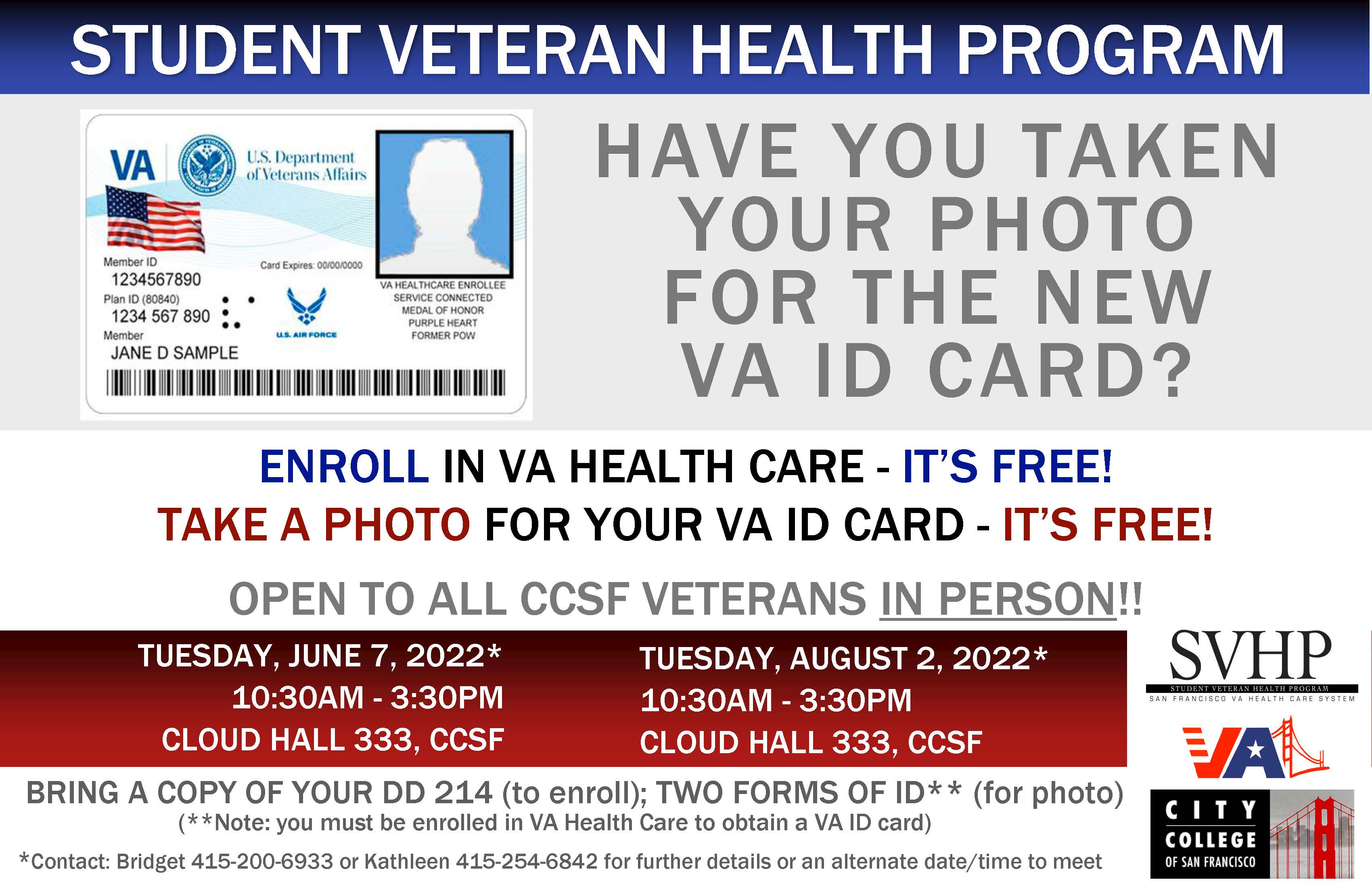
Monday - Thursday: 9:00 AM-4:00 PM & Friday: 9:00 AM - 2:30 PM
Anyone hoping to connect with SFVA’s CCSF Student Veteran Health Program staff for assistance in enrolling in VA health care or other supportive services can contact:
415-200-6933
415-845-0996
Bridget & Dennis are both social workers with the SFVA Health Care System’s Student Veterans Health Program, usually located in person at CCSF, but now available remotely via work cell to speak over the phone or via VA video connect for tele-social work & tele-mental health.
For veterans who are not yet enrolled in VA health care, now would be an excellent time to do so. We are happy to answer any question, provide support and help veterans navigate VA health care enrollment & other services and resources now moving remote across schools, health care systems & other community resources.
If you have symptoms of fever, cough and shortness of breath or have either recently returned from China or have direct exposure to others diagnosed with Novel Coronavirus Disease seek medical care right away. Contact the SFVA’s Telephone Linked Care (TLC) Line (24/7) at 800-733-0502 and ask to speak with an Advice Nurse.
The SFVA Emergency Department (4150 Clement Street @ 42nd Ave, SF 94121) is open 24/7 for urgent and emergency medical and mental health issues. Veterans may also enroll in VA health care on-site at the SFVA Medical Center at Member Services (same address: 4150 Clement St, SF).
Additionally, the Veterans Crisis Line is available 24/7 at 800-273-8255, Press 1 for Veterans.
If you are interested in information from the SFVA about the COVID-19 vaccine please reference the following web pages
- COVID-19 vaccine for Veterans
- COVID-19 vaccines FAQs
- Veterans can stay informed by signing up for updates here
DON'T HAVE A VA HEALTH CARE ID CARD?
| WHAT: | VA Health Care ID Cards and Enrollment: HAVE YOU TAKEN YOUR PHOTO FOR THE NEW VA ID CARD? |
| WHEN: |
Call 415-239-3486 to see our SVHP availability |
| WHERE: |
In-Person: CCSF Ocean Campus, Cloud Hall Room 332 |
| DETAILS: |
|

|
AS A REMINDER – Veterans do NOT need to have a service-connected disability or be retired from the military to qualify for VA health care services.
Please join us and bring your questions!
Learn more about our services!
Your Student Veteran Health Program Team
A collaboration between the San Francisco VA Health Care System and City College of San Francisco (CCSF), the Student Veteran Health Program (SVHP) began in August 2010 and has led the nation in providing an array of comprehensive services to student veterans on campus. Our Student Veteran Health Program Team consists of SF VA Health Care Enrollment Services, Social Work and Psychiatry.
The SVHP is one of ~26 funded VA programs under the Veterans Integrative To Academic Leadership (VITAL) initiative, part of the VA’s national effort to outreach and provide services to support student veterans.
What We Do
The SF VA Student Veteran Health Program at CCSF helps CCSF veterans with the following:
- Assist you with your enrollment in SFVA health care.
- Assist you in scheduling medical and mental health appointments.
- Aim to ease the experience of asking for and receiving help from the VA.
- Coordinate and provide a series of lectures on relevant topics for student Veterans
- Aim to support your well-being in an academic environment.
- Provides some on-campus mental health services.
Services are available for:
- Time management
- Attention and/or memory difficulties
- Sleep issues
- Smoking Cessation
- Adjustment
- Stress Management
- Posttraumatic stress
- Depression
- Substance use
- Anxiety.
- TBI (traumatic brain injuries)
- Medication Management
- Social Work Services / Referrals to VA, Community, and/or Campus Resources
- Consultation with and Training of Faculty and Staff (release of information by veteran student is required for any release of specific veteran information)




